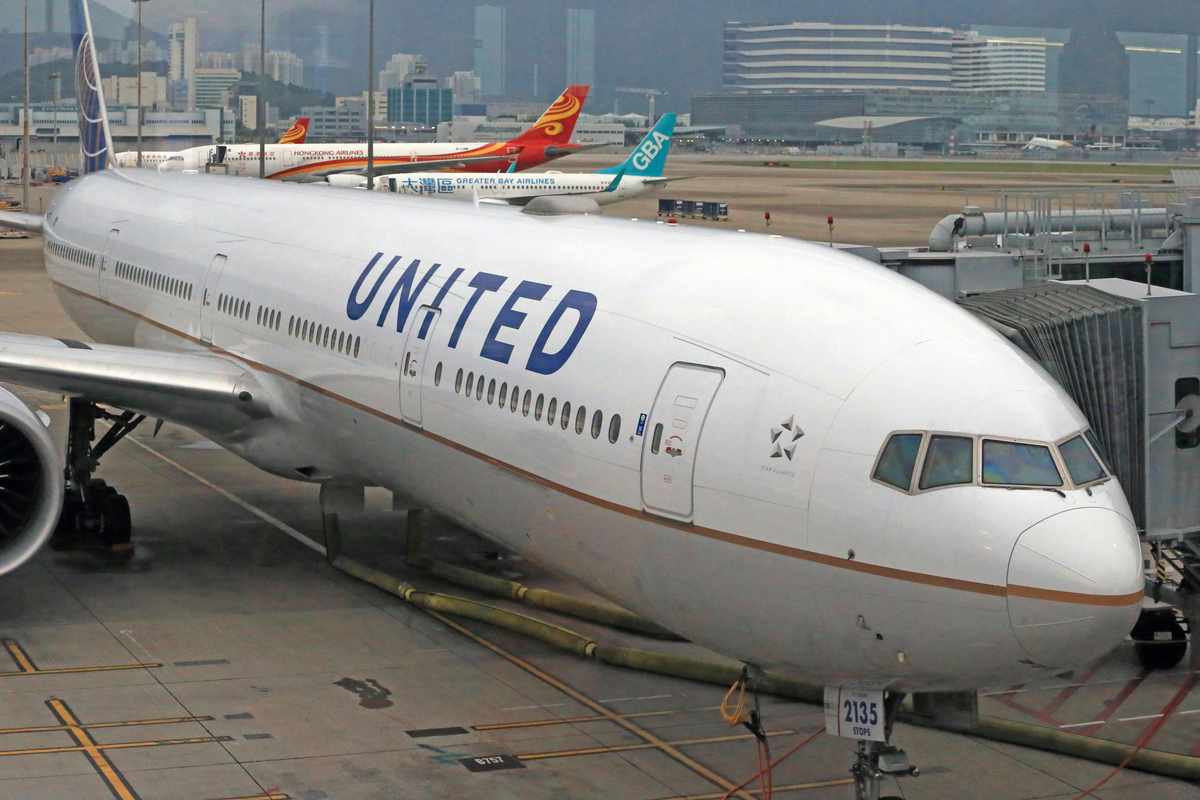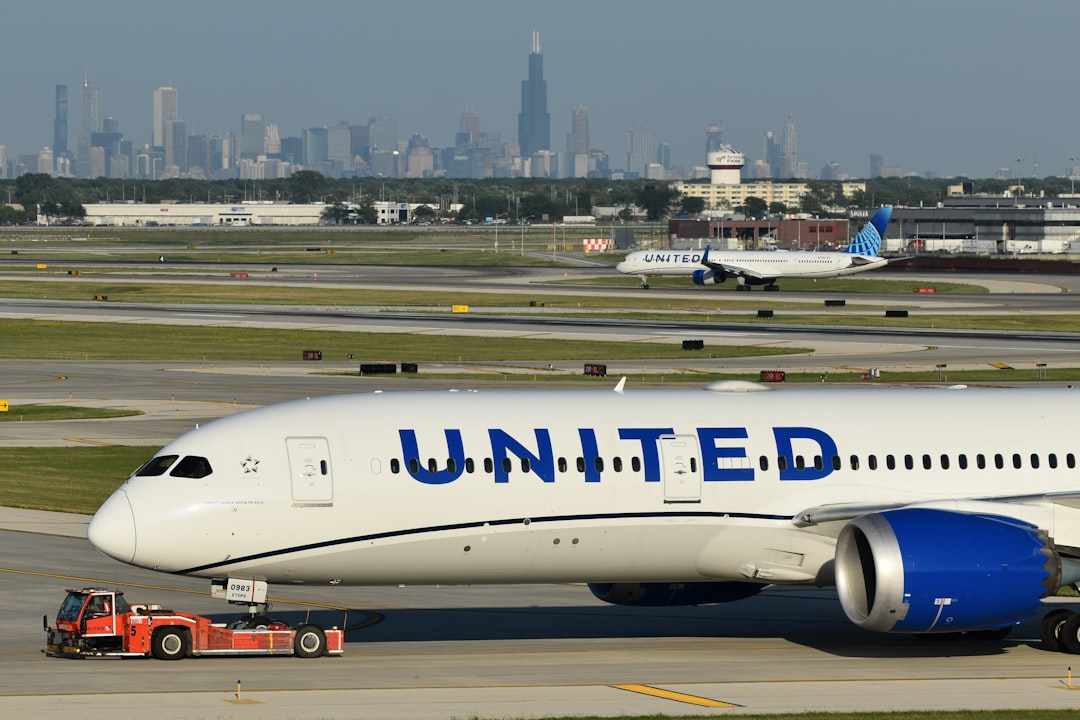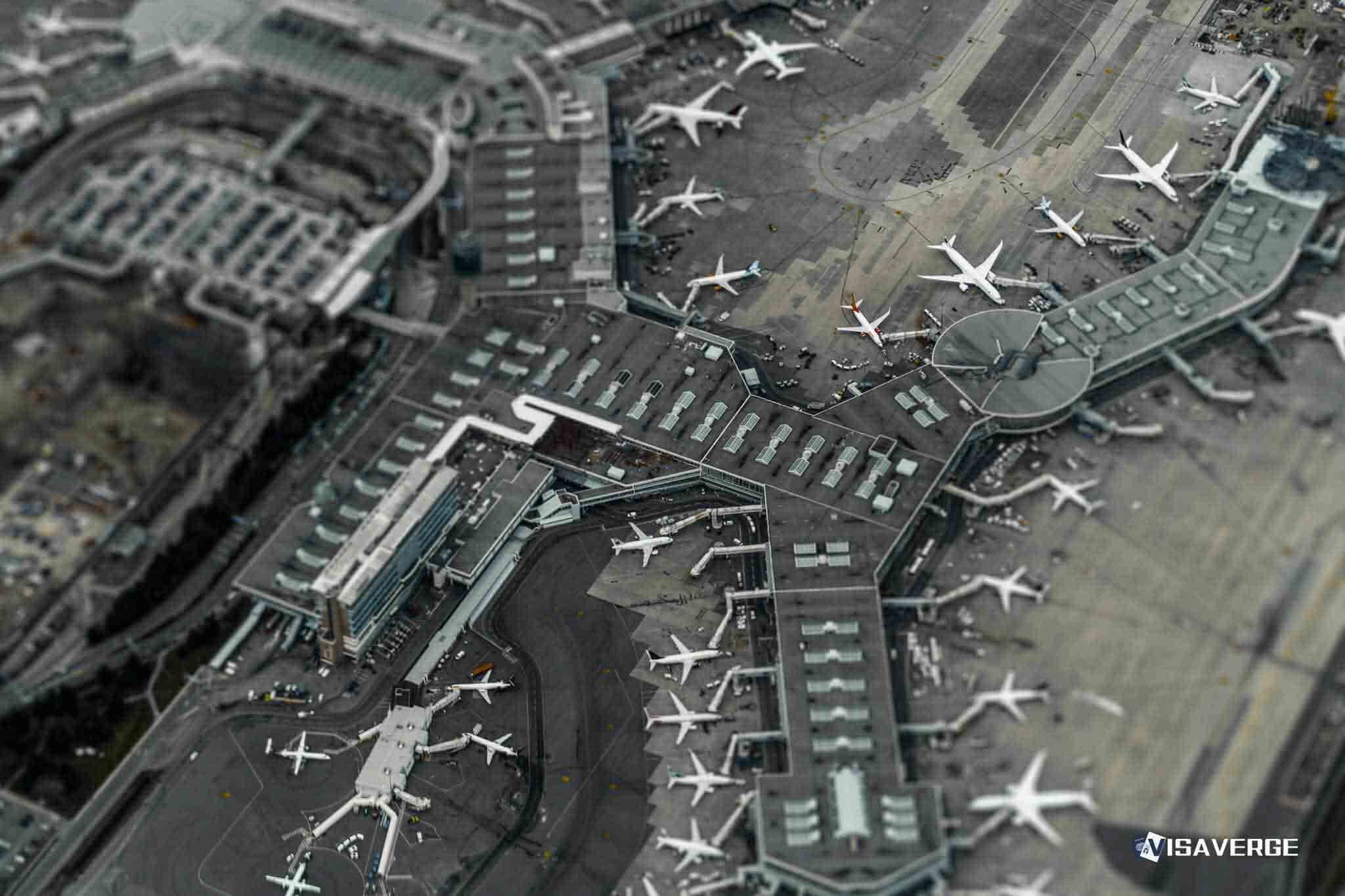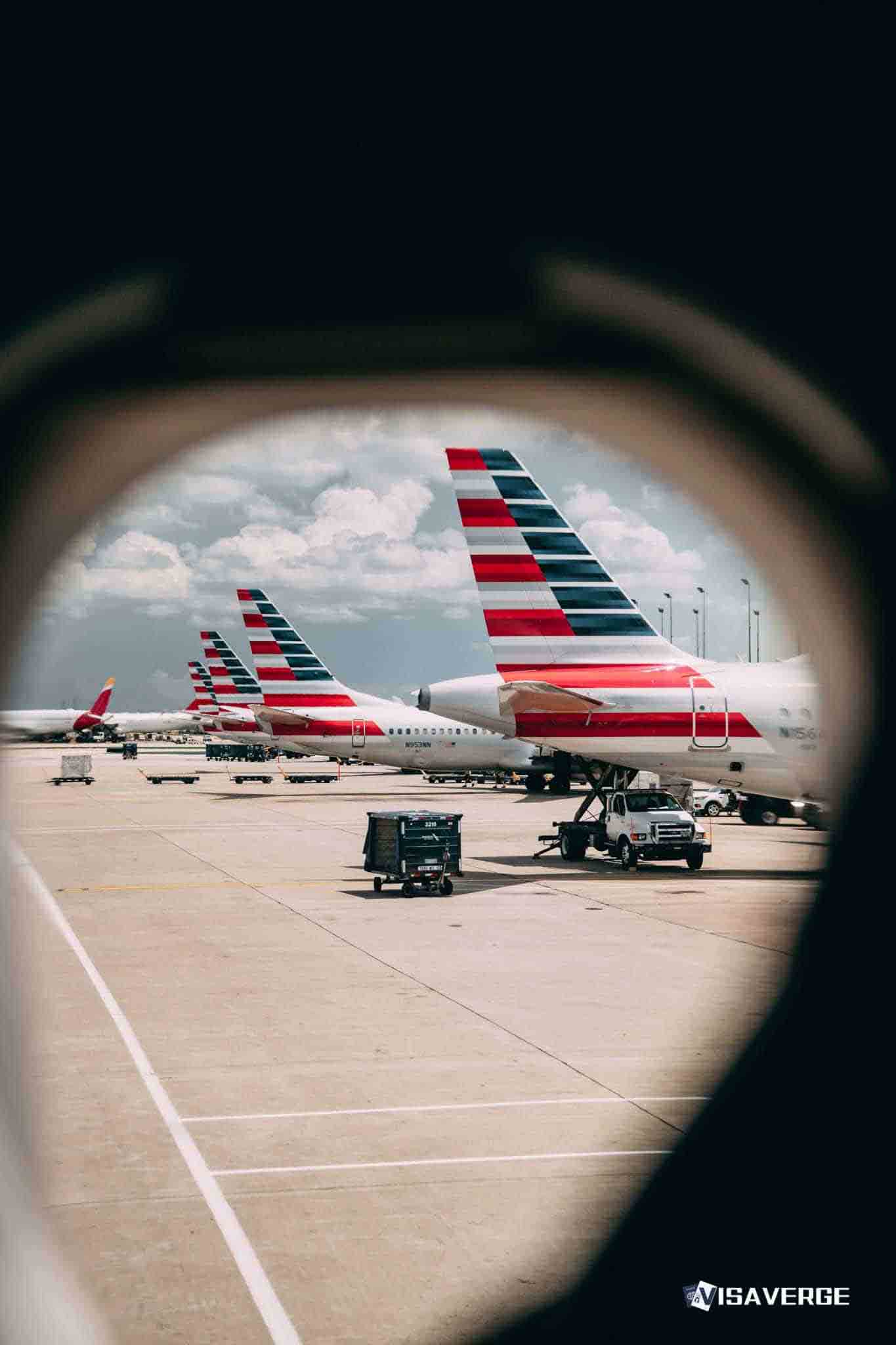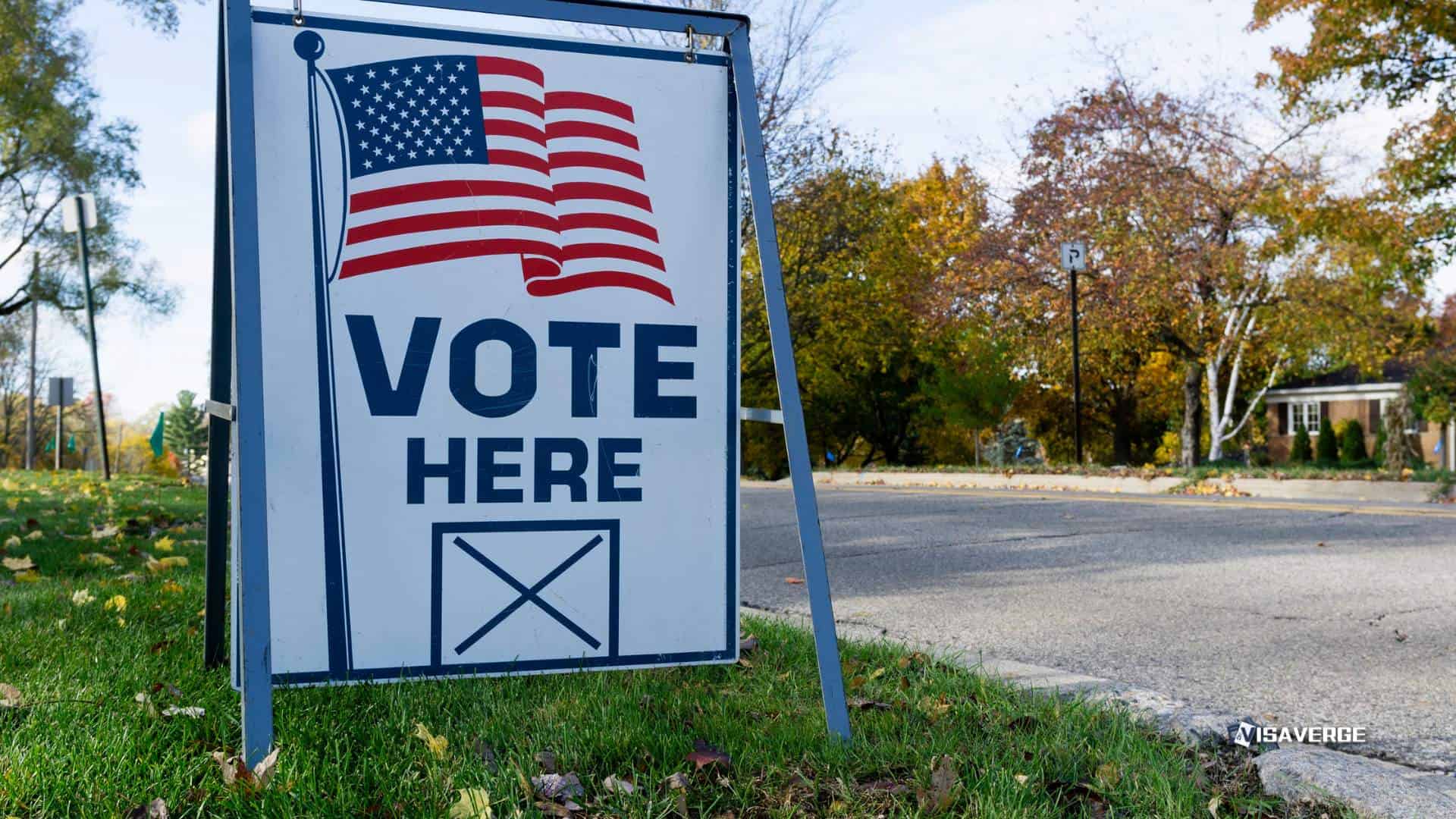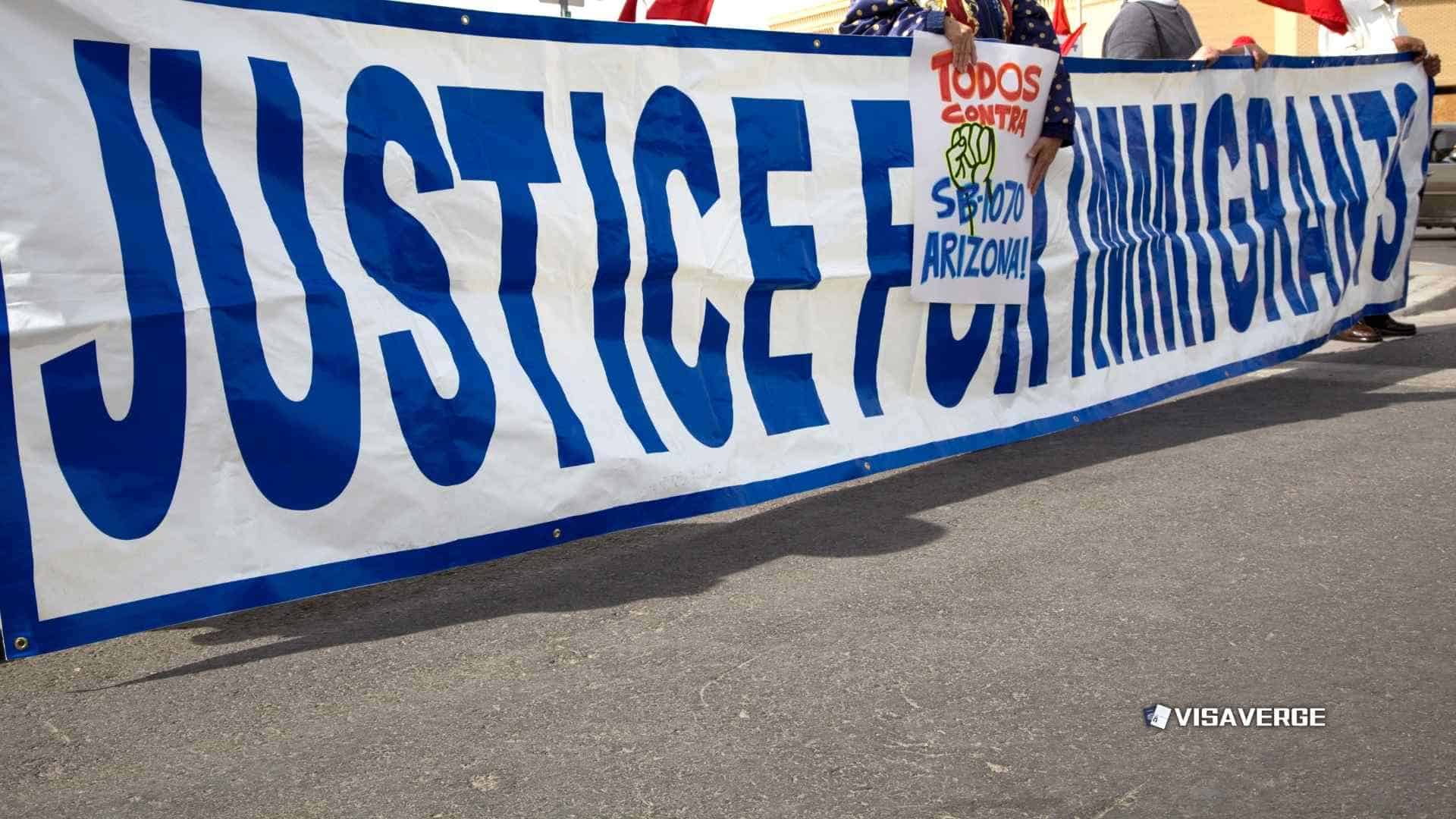In an incident that seems straight out of a Hollywood movie, a 46-year-old Russian man managed to defy airport security and boarded a US-bound flight, only to be later arrested upon landing in Los Angeles on November 4. This case is not just a stark reminder of airport security loopholes but also underscores the vigilance required in international travel protocols. The following account details the audacity of the US-bound stowaway and the subsequent legal repercussions.
The Brazen Journey of a US-Bound Stowaway
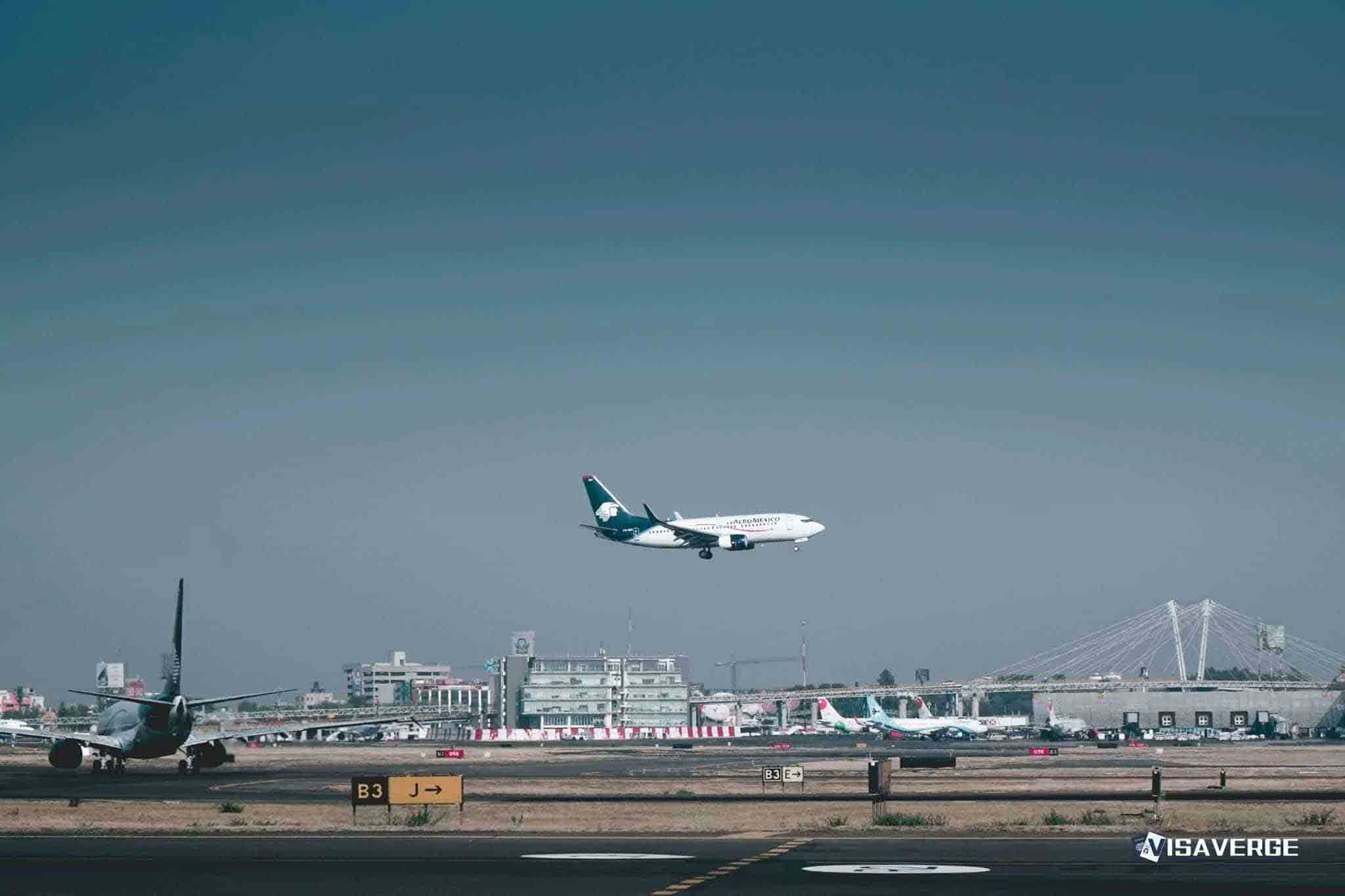
This Russian national managed to board a Scandinavian Airlines flight from Denmark to Los Angeles without a passport or ticket. Throughout the 10-hour flight to Los Angeles without a ticket, the man employed a strategy of seat switching to receive free meals provided by the unsuspecting flight crew. This crafty behavior allowed him to go unnoticed for the duration of the journey, receiving services to which he was not entitled.
Upon landing at Los Angeles International Airport (LAX), his scheme unraveled. The U.S. Customs and Border Protection officers at LAX’s immigration checkpoint could not find any legitimate travel or identification documents on him. It was then that the Russian stowaway furnished false and misleading information to the authorities, even falsely stating that he had left his passport on the plane.
Investigation and Outcome
After his ploy came to light, the man was interviewed on November 5 with the help of a Russian translator. He told FBI agents that he had not slept for three days and had no recollection of how he managed to get onto the plane. During the interrogation, he remained evasive about his reasons for being in Denmark and his passage through security checkpoints at Copenhagen Airport.
However, as justice would have it, a jury has since found him guilty of one count of being a stowaway on an aircraft, as announced in a news release by the U.S. Attorney’s Office for the Central District of California on January 26. The individual who holds both Russian and Israeli passports has been in federal custody since arriving at LAX and now faces up to five years in prison. His sentencing is scheduled for February 5.
Escaping Security Measures
Notably, on November 3, the man slipped past security at the Copenhagen Airport by tailgating another passenger through a security turnstile and made his way into an airport terminal without being stopped, despite having no boarding pass. Danish border police had previously seized his passports upon finding that he was a “Schengen overstay” – staying more time within the European Schengen Zone than permitted.
Instructions by officers to remain in the non-Schengen terminal while they dealt with his visa issues were ignored. According to trial briefs, the stowaway Russian man attempted to catch flights to Bangkok and London before successfully boarding the flight to Los Angeles.
The Flight and the Aftermath
Flight attendants initially noticed him in the business class and tried to assist, presuming him to be a passenger in the wrong section. Nevertheless, he settled into an economy-class seat that was unassigned. The accused was the only person not listed on the 183-person flight manifest. This did not deter him, as he continued to secure free meals by moving between seats on the aircraft and deceitfully claiming that he had not been served before.
“He deceived crew into giving him a second meal by moving between sections of the aircraft while claiming he was not previously served,” said the trial brief. His antics extended to trying to eat chocolate meant for the cabin crew, highlighting the lengths to which he went to take advantage of the amenities on the flight.
When contacted for comment on January 29, Scandinavian Airlines did not immediately respond to inquiries from McClatchy News, the media that reported on this event.
Reflecting on Airport Security and Immigration Laws
From a broader perspective, this incident brings to light the challenges faced by airport security and immigration officers worldwide. It also raises questions about potential areas for improvement in airport security protocols to prevent such situations. The U.S. Customs and Border Protection and other similar agencies around the world strive to maintain stringent security and immigration checks to ensure the safety and legality of travelers crossing international borders. All travelers, regardless of national origin, must abide by the established laws and regulations when entering a country.
For information on legitimate travel and immigration processes for entering the United States, individuals can refer to the official U.S. Customs and Border Protection website or consult authorized immigration lawyers and experts.
Indeed, the tale of this Russian man sneaks onto a plane bound for the United States is a cautionary narrative for would-be stowaways and a stark example of the necessary balance between liberty and law in the realm of international travel.
Learn Today:
Glossary or Definitions:
- Stowaway – A person who hides on a vehicle, such as an aircraft or ship, without paying for a ticket or having the necessary documentation to travel legally.
-
Airport security – Measures and procedures put in place to ensure the safety of passengers, personnel, and property at airports, including the screening of individuals, luggage, and cargo.
-
International travel protocols – Rules and guidelines established by countries and international organizations to regulate the movement of individuals across borders, including requirements for passports, visas, and travel documentation.
-
Vigilance – The state of being alert, watchful, and attentive, especially in terms of observing and preventing potential security threats.
-
U.S. Customs and Border Protection (CBP) – An agency within the U.S. Department of Homeland Security responsible for securing the borders of the United States, enforcing immigration and customs laws, and facilitating legitimate international trade and travel.
-
Immigration checkpoint – An area at an airport or port of entry where immigration officers inspect travel documents, verify the identity and eligibility of individuals entering a country, and determine admissibility.
-
Legitimate travel or identification documents – Documents such as passports, visas, or other official identification papers that are recognized as valid and authorized for travel.
-
False and misleading information – Deliberately providing incorrect or deceptive details or statements intended to mislead or deceive authorities.
-
Federal custody – Being detained or held under the jurisdiction of federal law enforcement agencies, such as the FBI or U.S. Marshals Service.
-
Schengen overstay – Refers to a person who exceeds the allowed period of stay in the Schengen Zone, a group of European countries that have abolished internal border controls.
-
Trial briefs – Written documents submitted to a court by prosecutors or defense attorneys summarizing the facts, arguments, and relevant laws related to a case.
-
Flight manifest – A list of passengers and crew members on an aircraft, including their names, seat assignments, and other relevant details.
-
Non-Schengen terminal – An area within an airport dedicated to flights that do not fall under the jurisdiction of the Schengen Zone.
-
Cabin crew – The staff members responsible for ensuring the safety and comfort of passengers on an aircraft, including flight attendants.
-
McClatchy News – A media company that provides news coverage and operates various newspapers and digital platforms.
-
Airport security protocols – Standards, procedures, and guidelines implemented by airports to protect against threats, including screening processes, surveillance systems, and security personnel.
-
U.S. Customs and Border Protection website – The official online platform maintained by the U.S. Customs and Border Protection agency, providing information and resources related to customs regulations, border security, and immigration processes for entering the United States.
-
Immigration lawyers – Legal professionals specializing in immigration law, providing guidance and representation to individuals navigating the immigration process, including visa applications, deportation cases, and citizenship matters.
-
Liberty and law – The balance between individual freedom and adherence to legal principles and regulations within the context of international travel and immigration.
And there you have it, folks! The audacious journey of a stowaway that left airport security red-faced and authorities scratching their heads. It’s a reminder of the need for tight protocols in international travel. If you want to delve deeper into the fascinating world of visas and immigration, head over to visaverge.com. Trust me, you won’t want to miss what we have in store!
This Article in a Nutshell:
A Russian man managed to board a US-bound flight without a passport or ticket and received free meals by switching seats. Upon landing in Los Angeles, he was arrested, found guilty of being a stowaway, and now faces up to five years in prison. This incident highlights the need for better airport security protocols.


